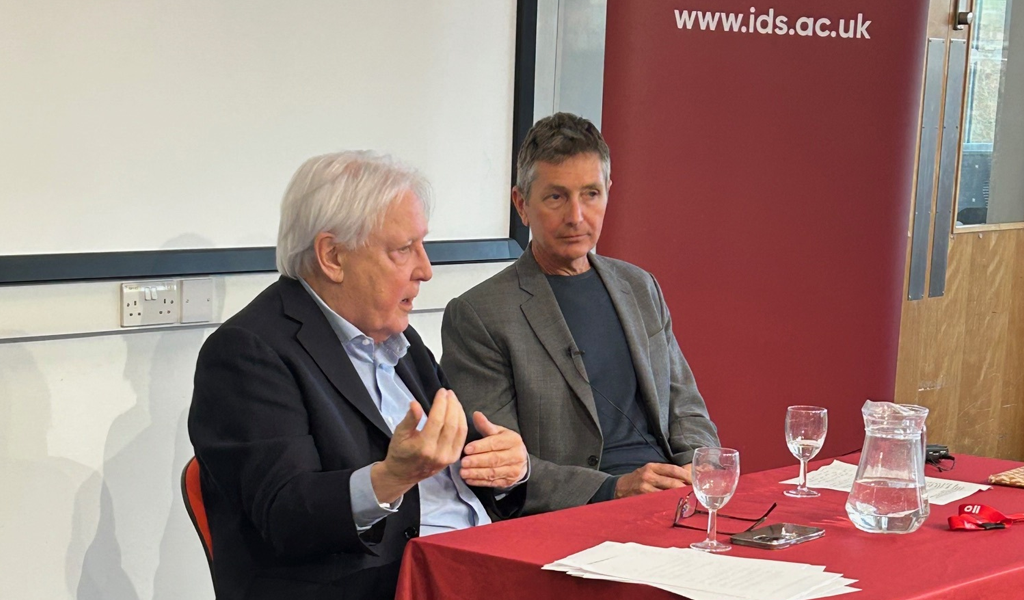Martin Griffiths is working to create new coalitions for humanitarian reform, human rights, and humanitarian diplomacy in a context of rising impunity and unprecedented challenges to the post-WW2 international order. His focus is around facilitating engagement between policy, practice, and research.

Martin has fifty years of professional experience with the United Nations and other global institutions. He was Under-Secretary-General for Humanitarian Affairs and Emergency Relief Coordinator at the United Nations from 2021 to 2024. Martin now serves as Executive Director of Mediation Group International.
Martin is recognized as one of the most accomplished international mediators of conflicts around the world. He founded the Centre for Humanitarian Dialogue in Geneva in 1999, which has since become the world’s leading and largest private diplomacy institution. To date he has led mediations in every continent, from Indonesia, Thailand, Myanmar and Afghanistan, to Spain, Sudan, Syria and Venezuela. He reached the top of the profession as the UN mediator in Yemen from 2018 to 2021.
Martin’s humanitarian experience started as a frontline aid worker in the UNICEF Thai/Cambodia Border Operation in 1979. He went on to regional and then global responsibility for humanitarian action in both the non-governmental sector and within the United Nations.
As the United Nations Under-Secretary-General for Humanitarian Affairs and Emergency Relief Coordinator, Martin led humanitarian negotiations, both for principles and for access, to those in need. In this connection, Martin was the UN mediator of the Black Sea Grain Initiative. He also led global advocacy for humanitarian funding and for the rights of people and communities affected by crises. In mid-2024, 300 million people required humanitarian assistance at an estimated minimum cost of 56 billion US dollars a year.
Related content
Watch Martin’s Sussex Development Lecture: Humanitarian diplomacy in a world gone mad.
